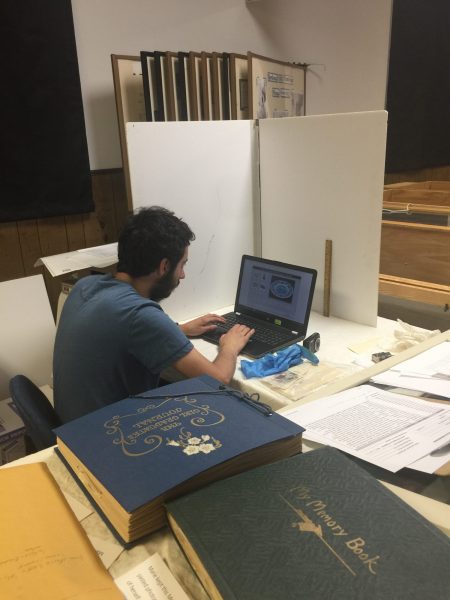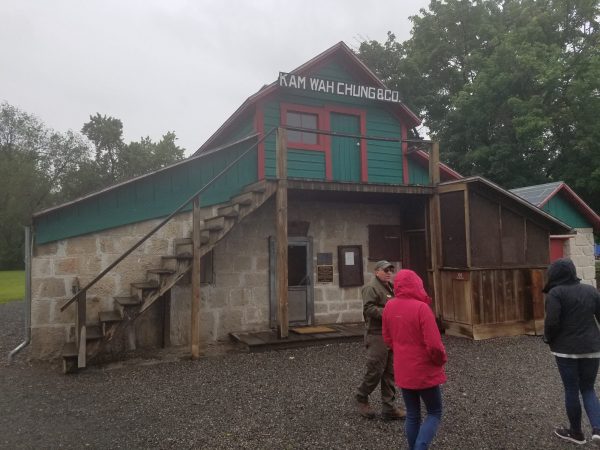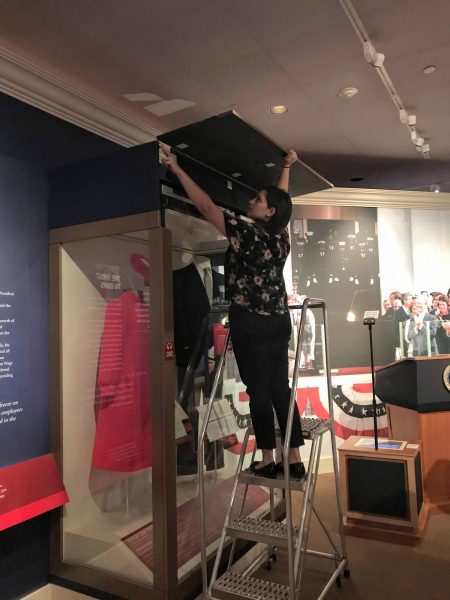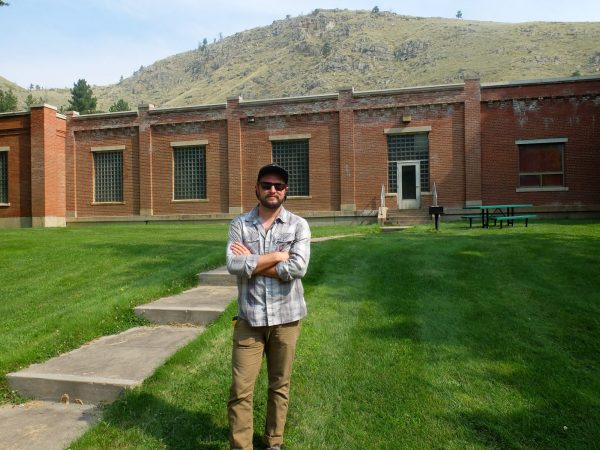Graduate Program
The Department of History at Colorado State University admits a select group of students each year for its Master of Arts program in History. Our program strengths include U.S. History, Environmental History, Public History, and CRM & Historic Preservation.
Program Overview
The Dept. of history at CSU is committed to providing a high-quality graduate education, inclusive learning atmosphere, and to building a diverse student population. In our program, students most commonly work with faculty who specialize in areas of U.S., Environmental, Public history, and CRM & Historic Preservation. Graduate students in the program also work closely with each other on class projects, in internships, and on professional and service-learning projects.
We have a considerable concentration of established historians who study Environmental History and who work with colleagues in CSU’s Warner College of Natural Resources, the Extension Office, and others at CSU to create interdisciplinary research and scholarship.
Our Public History program, in particular our concentration in CRM & Historic Preservation, is one of the oldest in Intermountain West, has a job placement rate of over 90%, and is nationally renowned. Graduate students in our program also have an unparalleled opportunity to apply for competitive paid internships and research positions in which they gain professional experience and network while completing their degrees. Such opportunities include a standing internship program with Pinyon Enviromental, Inc.; projects through the Public and Environmental History Center; and grant-funded public and applied history projects with faculty members.

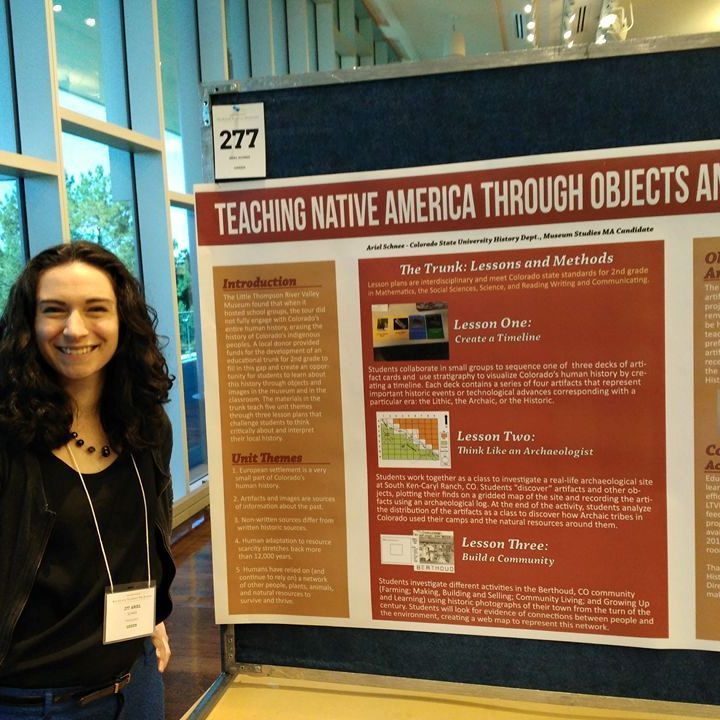
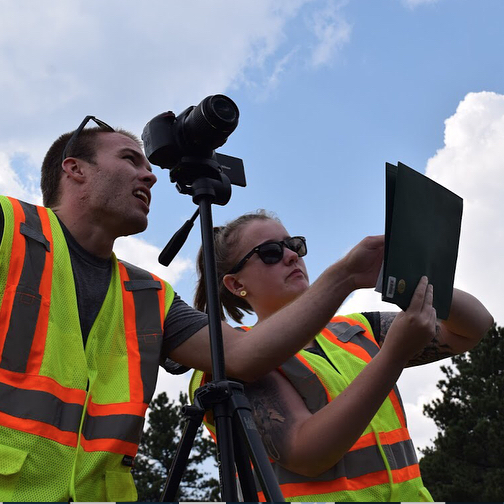

The Department of History is committed to inclusive, team mentoring. We encourage prospective students to review our guidance documents on mentoring and to talk to individual faculty and current students.
Programs of Study
We have three pathways, or programs of study, to the MA in History: Plan A Thesis, Plan B Liberal Arts, and the CRM & Historic Preservation Concentration.
Students studying a geographical, chronological, or thematic area that is supported by department faculty and CSU resources should apply to either the Liberal Arts Specialization Plan A or Plan B programs in which students learn historiography and historical research methods. Students pursuing this option can write a thesis on Plan A or choose to complete more coursework on Plan B.
PUBLIC HISTORY
Public History is defined by the National Council for Public History as “the many and diverse ways in which history is put to work in the world.” Our graduate program offers several options for students who want to study public history;
- Complete the Cultural Resource Management and Historic Preservation Concentration
- Complete Plan B with at least 9 credits of public history courses and a public history internship
- Complete Plan A with at least 9 credits of public history courses and a public history internship
CRM & Historic Preservation
Cultural Resource Management and Historic Preservation is a broad interdisciplinary field that focuses on the identification, documentation, and interpretation of historic built environments, historic landscapes, and heritage resources (both tangible and intangible.) Cultural resource managers typically work for consulting firms, city and state governments, federal agencies, and non-profit heritage organizations. Historical training is essential for cultural resource managers to evaluate significance and create meaningful interpretation. Students interested in pursuing a career in the United States in CRM & Historic Preservation should apply to the concentration.
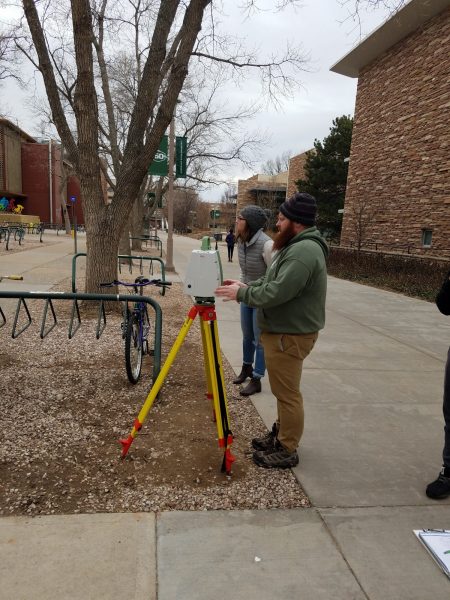
Sample Course Schedules
While your schedule of courses will be dependent upon the year you enter the program and your particular interests, we have provided a sample of how a student’s coursework schedule might look in each of our three Programs of Study.
Supporting Documents
Statement of Purpose
Your personal statement should clearly address why the MA in History program at CSU best fits your educational and career goals. Tell us which program of study (thesis, Plan B non-thesis, or CRM&HP) you are interested in pursuing. Also indicate which geographical (U.S., Europe, Latin America, Asia, World, etc.), temporal (to/since 1877, to/since 1850, to/since 1500, etc.), and/or thematic areas (public history, women’s and gender history, environmental history, religious history, etc.) within history you intend to study. You should identify the faculty whose teaching and research align with yours, reach out to those faculty, and confirm that an appropriate faculty member is willing to serve as your primary advisor and mentor. Please tell us which centers and activities at CSU you are interested in participating in and what scholarly organizations you are a part of or would like to become involved with. We do not admit students to our program whose interests do not align with the strengths of our graduate faculty and program. Please tell us specifically how you see that an MA in History from CSU will advance your professional goals.
Three Letters of Recommendation
Letters should come from people familiar with your work. At least two references must come from academic faculty, preferably historians.
Academic Writing Sample
This writing sample should be a history research paper, preferably using primary and/or archival research or indicate your familiarity with historiography. It should feature your best academic writing.
A Curriculum Vitae
Your C.V. should include your education, relevant work experience, internships, awards, honors, publications, presentations, and other relevant information.
Official Transcripts
Contact your previous institution(s) to request they submit your official transcript to Colorado State University (use CSU institution code 4075)
Public and Environmental History
Center Research Projects
The Public and Environmental History Center (PEHC), formerly the Public Lands History Center (PLHC), is an award-winning research center that is administratively attached to the CSU History Department and run by history faculty. The PEHC gets students out of the classroom and into the field to get the experience and connections they need for fulfilling careers after graduation, completing projects for federal agencies, such as the NPS, for state departments such as Colorado Parks and Wildlife, for city governments, and for non-profit organizations.
PEHC faculty are committed to doing community history and historic preservation through an alternative model for collaborative research and engagement grounded in place-based history and the environment, shared authority and reciprocity. Recovering histories of difference in partnership with public agencies, local historical societies, and students promotes shared community values, justice and democracy, and public dialogue. The PEHC upholds its mission in every component of its work, whether we are operating in the field or in the classroom.
Funding
GRADUATE TEACHING ASSISTANTSHIPS
The History Department provides funding for graduate students on a competitive basis through Graduate Teaching Assistantships (GTAs.) In a typical year, the department can offer 9-11 incoming students GTA funding. GTAs receive a full tuition waiver for four semesters, a monthly stipend during the school year, and health care benefits. All applicants are automatically considered for a GTA position.
For more information on GTA benefits, visit the GTA Finances page.
In order to receive the financial benefits of the GTA, students are assigned to work with professors teaching 100 level History classes. A GTA attends class, holds regular office hours to meet with students, answers students’ questions in office hours and via email, and grades assignments. Some GTAs will also lead discussions and deliver a lecture to the class.
GTAs typically grade for a different instructor each semester, so they gain a broad historical overview and insight into different teaching methods.
SCHOLARSHIPS AND AWARDS
The history department offers scholarships and awards for graduate students. Students can also apply for scholarships through the Office of Financial Aid.
Other Funding
In partnership with Pinyon Environmental, Inc., a paid internship in CRM & Historic Preservation is offered each year. Additionally, faculty often hire graduate students to work on contracted or grant-funded public and applied history projects, or to work on individual scholarly projects.
Internships and Practicum
All students studying Public History, regardless of their official program of study, will complete at least one internship or practicum. Both internships and practicums are professionalizing, work-oriented experiences meant to help students gain practical experience and build a professional network. Students must adhere to the Standards and Guidelines for Student Internships.

EXAMPLES OF STUDENT INTERNSHIPS
Colin Fogerty (Little Thompson Valley Pioneer Museum, 2019)
During the summer of 2019, I worked in an internship at the Little Thompson Valley Pioneer Museum in Berthoud Colorado. My work for the museum included a range of activities, such as cataloging early twentieth-century kitchenware by inputting information about them into the program PastPerfect and taking photographs of them. In addition, I assisted in […]
Eric Newcombe (Oregon State Historic Preservation Office, 2019)
This summer I was a summer staff intern with the Oregon State Historic Preservation Office in Salem, OR. Through this incredible opportunity I was able to gain experience with multiple different aspects of historic preservation including the preserving the built environment, archaeology, technical preservation, community outreach, grant programs and the Main Street program. I traveled […]
Kimberly Selinske (Ronald Reagan Presidential Library, 2018)
I interned at the Ronald Reagan Presidential Library and Museum as part of the Curatorial department. The museum is located in Simi Valley, California, a location that lends itself to spacious gallery spaces that I helped to maintain and also is in the heart of wildfire territory, a lesson I learned on day 2 as […]
Dillon Maxwell (City of Fort Collins, 2018)
At the beginning of summer, I knew nothing about water treatment or bats. I didn’t even think those things could be related or even tied together by historic preservation. But, by the end of the summer that all changed. My internship with the City of Fort Collins centered on the preservation side of a project […]
- « Previous
- 1
- 2
- 3
- 4
- Next »
Alumni Statements and Achievements
The CSU History Department consistently places graduates in work at consulting firms; federal, state, and local government; community and non-profit organizations; museums and heritage organizations; and in some of the nation’s most competitive PhD programs.
“What takes the master's program to the next level is the practical experience it provides. Courses are built around real-world scenarios, and class projects yield tangible results that can be a perfect springboard into a work portfolio. Working for the on-campus Public and Environmental History Center (PEHC) also gave me an opportunity to hone my history skills as a student and an emerging professional. The PEHC also provided tons of opportunities to travel to amazing public lands destinations! I was hired right out of grad school for a cultural resource management position, and the education and experience I received at CSU has made a world of difference in setting me up for success.” Poppie Gullett graduated 2018, now at the National Parks Service.

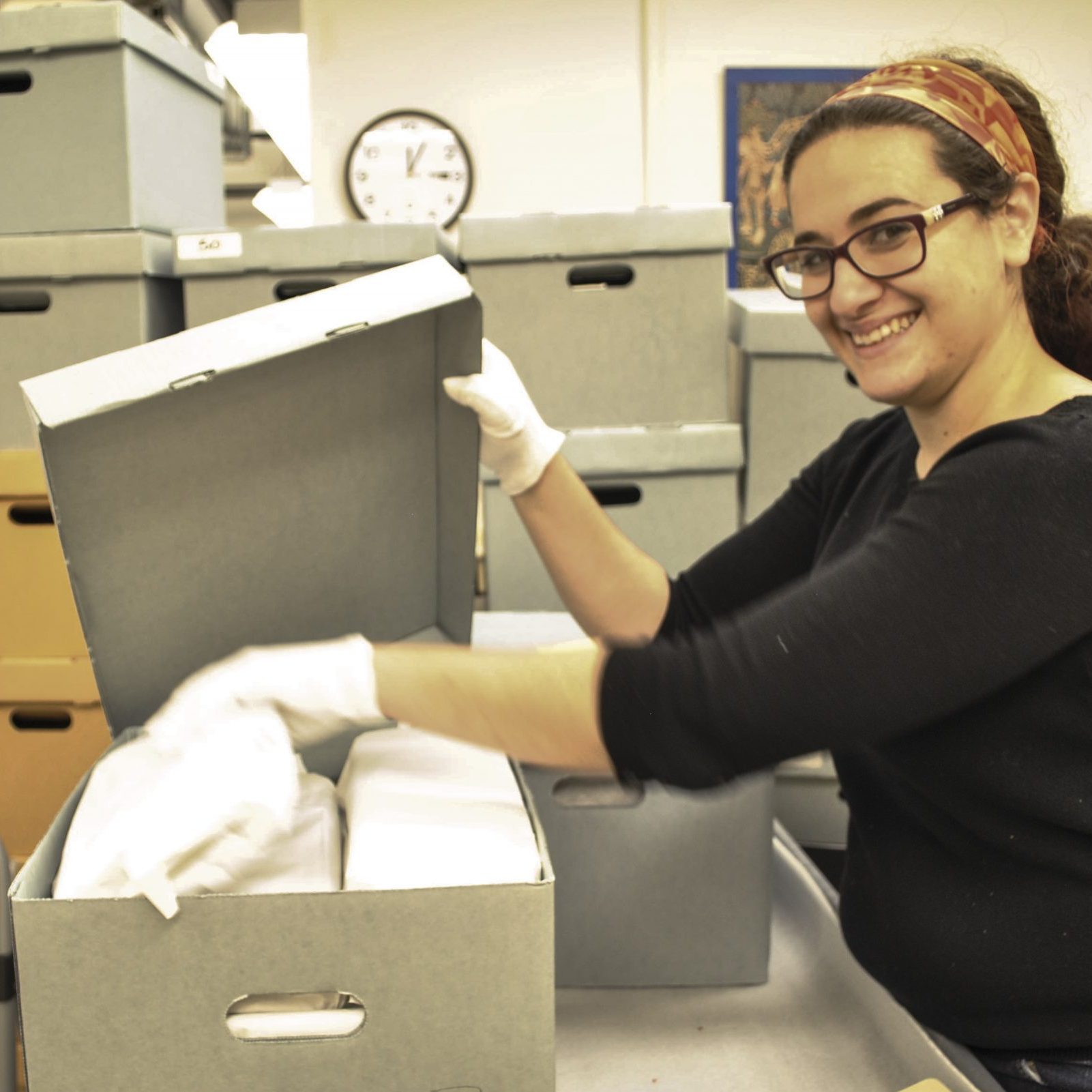
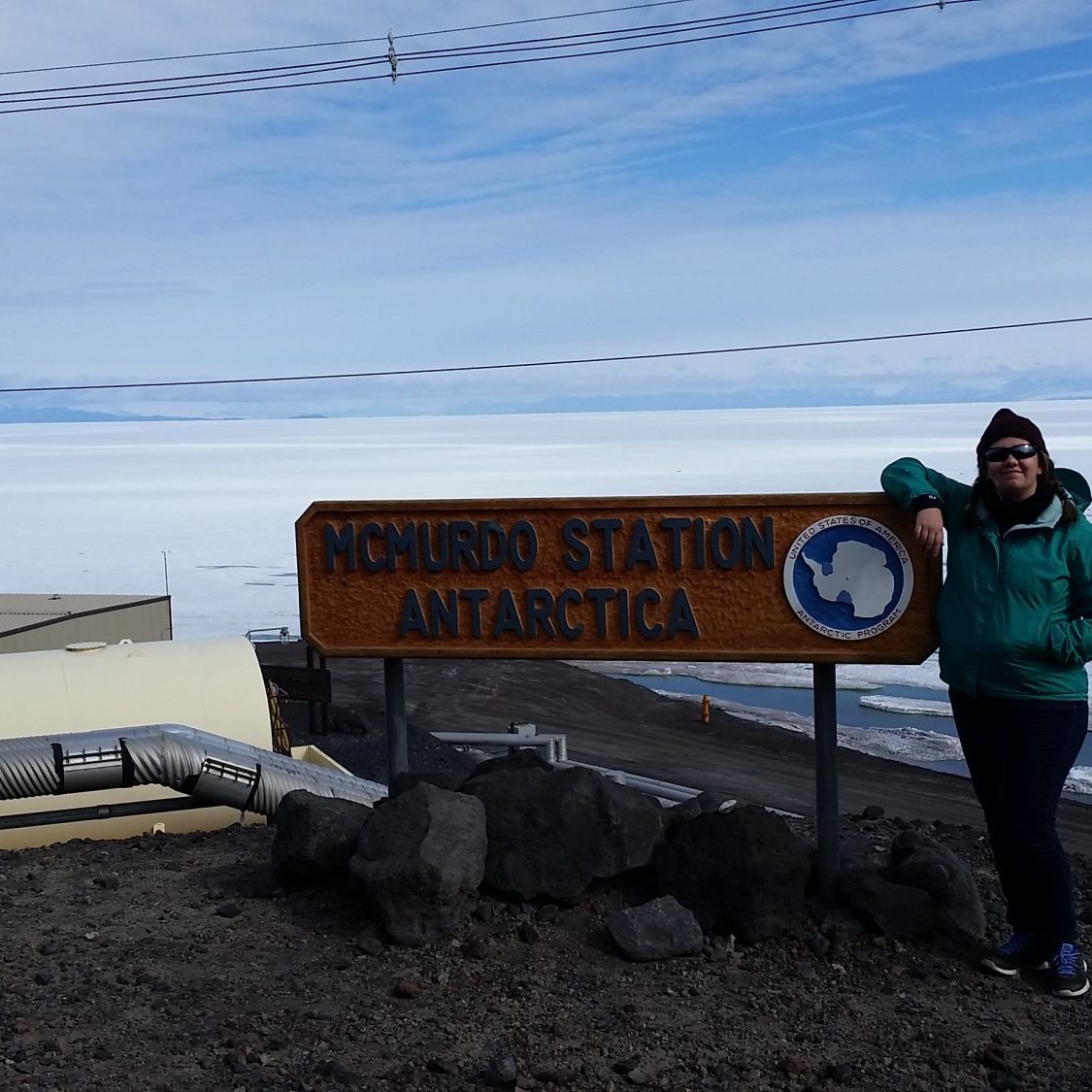

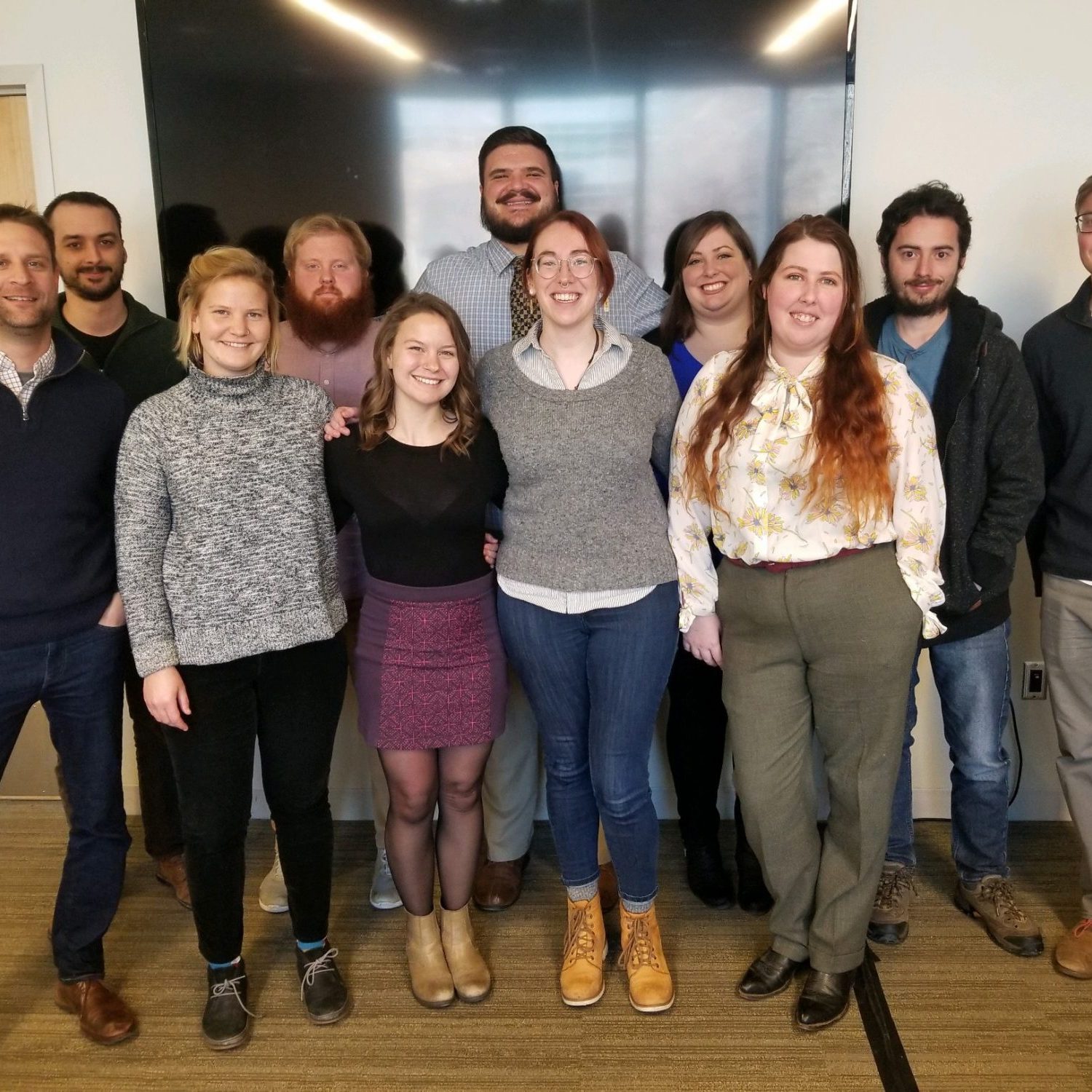
“While the academic program lays the foundational skills for any good historian - research, critical thinking, and writing - the professors also encourage and create opportunities for students to apply those skills. As a student, I gained experience in conducting oral histories, archival management, research, and working within art and history museums. In turn, my time at CSU allowed me to graduate with not only a MA in history, but a much fuller resume. I believe it is the culmination of the academic and real world training that I received at CSU that has opened the door to many professional opportunities.” Naomi Geriakos graduated 2014, now the Curator of Collections at Heritage Village in Pinellas County.
A FEW ALUMNI HIGHLIGHTS
Hailey Brazier (MA 2013) completed the PhD program at the Univ. of Oregon. Her dissertation research is in marine environmental history -- a history of how North Americans began to discover, conceptualize, and install technologies on the Pacific seafloor. Hailey was awarded a National Science Foundation dissertation grant and research travel funding from the Smithsonian.
Jake Swisher (MA 2020) was accepted into the PhD program in history at Notre Dame University.
Craig Somers (MA 2020) accepted a temporary position with the prestigious National Council for Preservation Education (NCPE), working with a NPS historic landscape specialists in Seattle. He helped produce video training modules for stewardship and preservation of cultural landscapes.
Dillon Maxwell (MA 2019) has worked both for the U.S. Forest Service and for CSU’s Center for Environmental Management of Military Lands (CEMML).
Maren Bzdek (MA 2015) is now a senior historic preservation planner for the city of Fort Collins. Her research played a key role in NASA’s restoration of the Johnson Space Center’s Apollo Mission Control Center.
MA graduate Jason O’Brien (2014) works for the Colorado State Historic Preservation Office on the Preservation Planning Team. Jason’s old position as Section 106 coordinator has been filled by another of our grads, Mitchell Schaefer (MA 2015).
